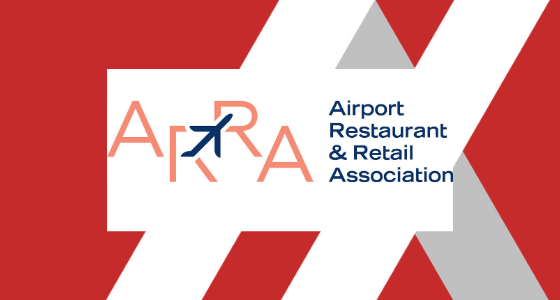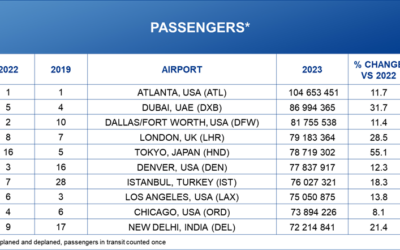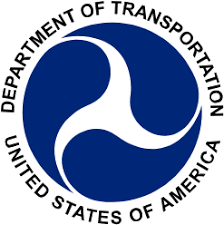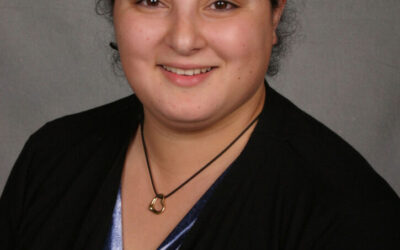Collaboration and utilization of data are key as airports and concessionaires devise strategies for returning vibrancy to the airport concessions sector, according to two airport executives.
J’Aimeka “Jai” Ferrell, assistant general manager, commercial development at Hartsfield-Jackson Atlanta International Airport (ATL), and Deven Judd, director of customer and concessions development for the Metropolitan Washington Airports Authority (MWAA), which oversees Ronald Reagan Washington National Airport (DCA) and Dulles International Airport (IAD), shared their insights on the weekly industry call hosted by the Airport Restaurant & Retail Association (ARRA).
Ferrell said ATL is accustomed to operating from a position of plenty – plenty of passengers, plenty of offerings, plenty of parking. “This was the first time for our enterprise that we had to think more strategically instead of the default that it would be fine,” she said.
She praised the collaboration as the industry strives to rebuild. “One of the most beautiful things I think I’ve seen during COVID was the integrated stakeholder calls, where we had the airlines on all of them, along with all of the concessionaires, along with our parking operators and contractors in this shared space of recovery,” Ferrell said, noting that in the past there was more of an “us-versus-them” mentality.
She also stressed the importance of shared data, which became important when the norm of full terminals all the time no longer existed. “We were really opening based off forecast data … so that one can make a strategic business decision on if they should or should not operate, simply because it’s not as easy as flipping on a switch. So, we found ourselves moving into the space of allowing data to guide us.”
Judd said MWAA also increased its collaboration with stakeholders, especially in the early days of the pandemic.
“That cross-collaboration and communicating with all of our partners, sharing of the data – it was heartwarming to be a part of that,” Judd said. Now, he added, MWAA is focusing on opening concessions in concourse where there is increased activity, using data to guide the moves. “We had that much more information to provide our concessionaires and our other business partners so they can make informed decisions, start to address some of the challenges that they are facing… and get it opened up,” he said.
Throughout the pandemic and now in the recovery, airports had to make decisions quickly, which often isn’t the norm for government agencies. “We didn’t have the grace of time in COVID,” noted Ferrell. “And the biggest thing was the unknown of what we didn’t know. I think our ability to respond quickly and to lobby and advocate quickly and communicate was very critical.”
She also said some amenities that were optional came to the fore. “Touchless experiences, being able to have ordering platforms, those things seemed to be value-adds,” she said. “Those things now seems to be very necessary and required.” Ferrell noted the importance of understanding expectations of a post-COVID consumer and integrating those services into the airport offering.
Of course, concessions can’t thrive if front-line employees aren’t there to serve passengers. Judd said a major problem currently at DCA and IAD is bringing employees back to work.
“This is affecting how we open up,” he said. “And if we can’t open up, can we expand the hours of the operation to ensure that there’s coverage in areas of the airport where we’re seeing more activity? Another immediate challenge that we’re starting to really start to get a handle on is, and understand the [concessionaire] need for one or two years of revenue generation. So, how will we keep the lights on, and incentivize our concessionaires to spend the capital to bring popular brands back and do innovative things in our airport? What can we do with the airport to offset some of those costs?”
Both Ferrell and Judd discussed the various relief mechanisms offered by the federal government, and noted they were crucial in helping concessionaires survive during the pandemic. “Absolutely I am for federal relief to support our industry, but we also have to think outside the box, make sure we’re making decisions with data, making sure we’re utilizing the strengths of our people and the strength of our industry and everybody around us to lean on in order to get through this,” Judd said.
Passenger demographics are also playing a role in how the industry recovers. Overall traveler numbers are rebounding but business travel and international travel – two higher-margin streams – are still depressed. Ferrell said that concessionaires may have to adjust their offerings in light of that fact. “You may have to [alter] what your business model is to be able to meet the need of the new passenger profile that’s coming into the airport because they are different,” she said.
Ferrell added that changes can be short-term. “Because you make a change – maybe you discontinue an item, maybe you add something, you take something away, maybe you find new vendors, whatever those things are – you don’t have to permanently change the structure and fiber of your brand to accommodate to this.”
Both airport executives also acknowledged that contracts governing airport-concessionaire relationships may have to change going forward, with the minimum annual guarantee, in particular, up for scrutiny.
“I can’t say for sure that we’re going to waive MAG, but there is going to be a discussion of what does this industry look like from a solicitation standpoint?” Judd said.
ATL will also be assessing the way forward. “Looking at [minimum annual guarantee] structures is definitely something that we, the airport are looking into and we’re trying to get the best in the business, but give us some ideas of how to move forward,” Ferrell said. “We have a very ambitious refresh of the concessions program we currently have. We were actually mid-solicitation in 2020 for both food and beverage and retail. It might be that some of the square footage that we thought was going to be allocated [to concessions] may have a different best use, with a different kind of lease structure to follow.”






